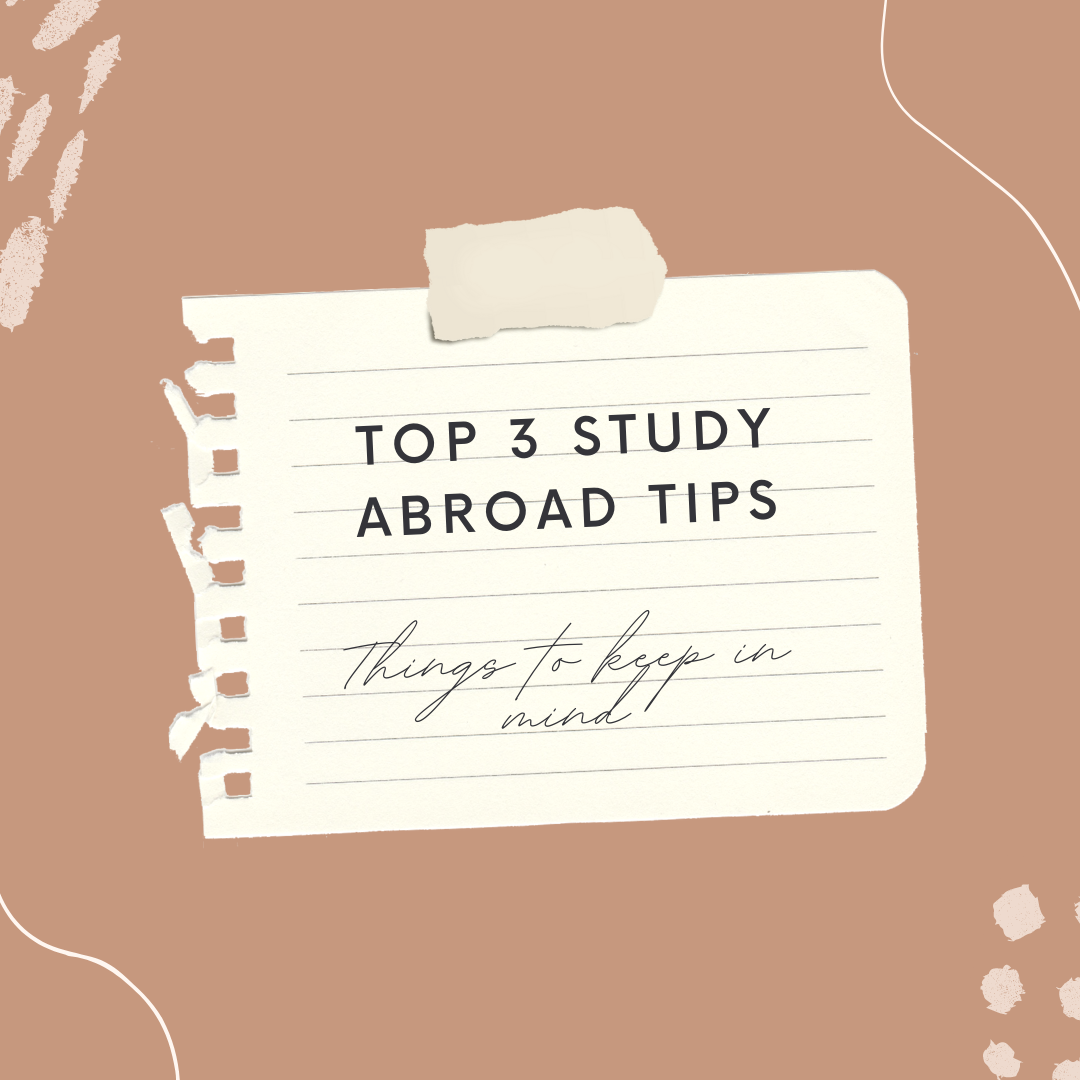
Top 3 Tips to Studying Abroad
Studying abroad can be tricky business. Sometimes the process seems daunting with all the paperwork, deadlines, and communicating that comes with it. Have no fear, I’m here to bring you the top 3 tips for studying abroad to help the process go a little smoother.
1.) Take a Moment to Think/Reflect
For me, I knew I wanted to go to Japan right off the bat. Anywhere else was an absolute no go. It was a country I’d already done extensive research on. I’d also completed research on the programs provided by my university (UMaine); however, for you, and others, it may not be that clear cut. Maybe you know you want to go abroad but you don’t know where you want to go. Take a moment and ask yourself these questions:
- What interests you?
- If there’s a particular country/countries you’re drawn to, what is it about those areas that intrigues you?
- Do you want to learn a foreign language?
- How long do you want to go for?
- What’s you budget? (You can find this out by looking at your FAFSA and seeing how much you pay for university per semester)
- Do you like primarily warm weather or cold weather?
Each of these questions will help to narrow down your search to certain countries. Maybe you’re interested in art but it’s not the style you’d find in France or Italy. Perhaps you enjoy the architecture and styles of that in China or Korea. On the other side of things, maybe you really want to surf, but your budget isn’t large enough for the expenses that Australia asks for. Have you checked out Spain or Portugal? They’ve got beach life and surfing, too! You have any number of options at your disposal, so be sure to really take a moment and think about what you want out of your study abroad experience.
2.) Do Some Research
Odds are, your study abroad department will have a website you can access which will tell you all about the programs they offer. UMaine has a specific webpage called Programs which lists out all of our programs for students. Take some time to browse through the site, get your bearings, and maybe do a little window shopping for a few programs that catch your eye. You don’t need to go into every minute detail about each offering-in fact, I advise against going too much into detail right off the bat as you could end up going into information overdrive. For now, looking to cultivate a basic understanding about location, what you like about that particular program, and some of the cost aspects will help make your meeting with the study abroad advisor that much easier.
This part will also help you become more informed on the workings of the study abroad website as you’ll most likely be seeing it often and navigating around the different pages. It’s a win win situation all around!
3.) Talk to Past Study Abroad Students
Your university will probably hold different events and informational sessions about going abroad. At these events, there are usually students speaking who have gone abroad. Will they always be students going to your desired country? Maybe not. That doesn’t mean what they have to say isn’t valuable. Before I went abroad, I coveted those stories, not just because they were fascinating and I loved living vicariously through them, but also because they’d been through the process. They booked their flights, navigated a foreign country, survived overseas on their own. They knew the routine and they knew how to succeed and come away with memories and intel on how the next batch of students going abroad could make the most of their experience.
You may not have questions right away, but somewhere down the line a question or two is bound to surface and, when that happens, those students-and your study abroad advisor-are gonna be the ones who hold the answer to those questions.
— Shania Soler (Tokyo, Japan), Study Abroad Assistant
